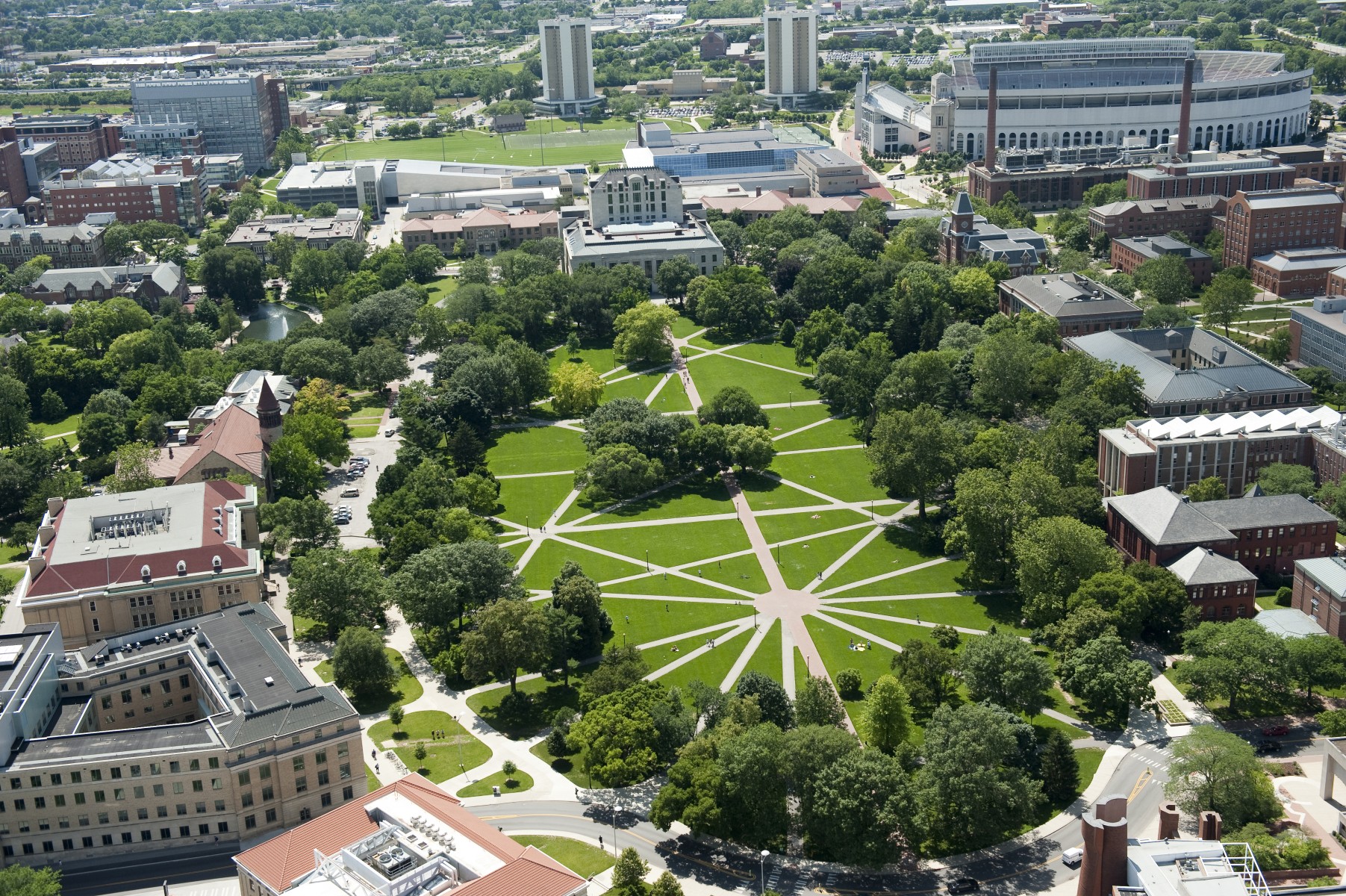President’s Research Excellence program funds projects tackling societal challenges
Catalyst Grants provide seed money to spur innovation

|
Chris Bournea Ohio State News |
Nearly $1.4 million has been awarded to seven interdisciplinary Ohio State research teams through the President’s Research Excellence (PRE) program. The program’s goal is to promote innovation and enhance the university’s standing among international research institutions by providing seed money for projects that address large, societal challenges.
A new round of grants focuses on Catalyst proposals, awarding up to $200,000 to teams whose research addresses challenges of national and international importance. Nine of Ohio State’s 15 colleges are represented in the seven proposals – demonstrating the interdisciplinary focus of the program, which is administered by the Office of Knowledge Enterprise.
 The Catalyst Grant recipients include a proposal titled “University Collaboration on Overcoming Attitudinal and Situational Barriers to Collaborative Initiatives to Advance Racial Equity: A Confluence of Dispute Process Design, Law & Social Science.” The research effort will identify barriers to advancing racial equity, encompassing the law, social science and several other disciplines, said Carl Smallwood, one of the proposal’s co-investigators and director of the Divided Community Project at Ohio State’s Moritz College of Law.
The Catalyst Grant recipients include a proposal titled “University Collaboration on Overcoming Attitudinal and Situational Barriers to Collaborative Initiatives to Advance Racial Equity: A Confluence of Dispute Process Design, Law & Social Science.” The research effort will identify barriers to advancing racial equity, encompassing the law, social science and several other disciplines, said Carl Smallwood, one of the proposal’s co-investigators and director of the Divided Community Project at Ohio State’s Moritz College of Law.
Team members have been seeking ways to collaborate since the summer of 2020, when nationwide protests shone an international spotlight on social justice issues, Smallwood said.
“This particular grant will make possible the kind of interdisciplinary research that not only brings together… the Knowlton School of Architecture, but also social work and sociology and other disciplines at Ohio State to examine these attitudinal and situational barriers to making progress on initiatives to address race equity,” he said.
Team members will study best practices from countries that have convened truth and reconciliation commissions to explore solutions to historic injustices, said Sarah Cole, the proposal’s lead principal investigator (PI) and a professor at the Moritz College of Law. 
“There’s so many things that we can take a look at that have happened in other countries and conceptualizations: What does it mean to tell the truth? What kind of truth? What type of justice are we looking for? Is the focus going to be on punishment, is it going to be on repair, is it going to be on redistribution?” Cole said. “Who makes that decision?
The Catalyst Grant will support team members in researching not only racial equity, but also societal challenges related to food, water, health and national security, among other issues, said Tijs Van Maasakkers, one of the proposal’s co-investigators and an associate professor in the City and Regional Planning section of the Knowlton School.
The research will examine “how people talk about issues related to police violence, issues related to, potentially, iconography or symbols in the public realm,” Maasakkers said. “For example, potentially a generational divide among activists or ways in which conversations either focus on the past or on the future, or which aspects of the past.”
The proposal will provide research opportunities for students in various disciplines, Maasakkers said.
“One of the things that’s exciting to me about the interdisciplinary nature of the team is that we’re also quite intent on recruiting interdisciplinary researchers,” he said. “We’re hoping to include a lot of Ohio State students at the undergrad and grad levels. We’re really trying to, again, have that interdisciplinary learning nature of the project reflected in the students that we recruit, as well.”
The research team also includes Teri Murphy and Korie Little Edwards, College of Arts and Sciences, and Tom Gregoire, dean of the College of Social Work.
The other 2021 Catalyst Grant recipients are:
“A New Paradigm in Foods for Health at Ohio State: Multi-Omics Integration in the Era of Precision Nutrition” – The project will use advanced data analytics to study microorganisms that can improve health. Lead PI: Steven Clinton, College of Medicine.
“Radioisotopically-Substituted Perovskites for Self-Powered Energy Storage and Photonic Applications” – The research will focus on renewable energy sources that can provide long-term sources of reliable power and nearly zero maintenance for a range of applications. Lead PI: Anne Co, College of Arts and Sciences.
“Hybrid Autonomous Point-of-Care Manufacturing” – The proposal seeks to establish a center of excellence at Ohio State in the field of point-of-care manufacturing. The center would demonstrate real-time methods that close the gap between the design and fabrication of personalized medical devices. Lead PI: David Dean, College of Engineering.
“Brain Infrared Modulation of Pathways for Aging, Cognition, and movemenT (Brain IMPACT)” – The research team’s vision is to develop a non-invasive therapeutic tool that can treat brain disorders, including Parkinson’s disease and major depressive disorder. Lead PI: Sanjay Krishna, College of Engineering.
“Creating Quantum Bits Based on Rare-Earth Ions for Quantum Networking” – The research effort involves transforming the element erbium into advanced light-processing systems. Lead PI: Ronald Reano, College of Engineering.
“CRANEES – Convergent Research for the Advancement of National Environmental Equity & Security” – The project aims to use data to make drinking water quality equity achievable in the United States. Lead PI: Mark Weir, College of Public Health.
The PRE program also offers Accelerator Grants of up to $50,000 to support small teams pursuing novel, high-risk, high-reward research. Nineteen teams were awarded funding though this mechanism earlier this year. Another request for proposals for Accelerator Grants is planned for spring 2022.


